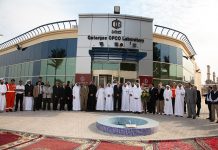The Latin American countries with greatest numbers of conflicts are those with broad social inequalities and governments with limited capacity to manage unrest, said a report released on Tuesday in English by the United Nations Development Programme (UNDP).
The report, titled “Understanding Social Conflict in Latin America,” revealed that social, institutional and cultural tensions in Latin America are numerous, compared to other regions, and were characterized by a high degree of citizen participation.
According to the report, Bolivia, Peru and Argentina were the countries with the highest number of social conflicts, with more than 200 cases for each of the countries, while those with the lowest levels of unrest were Costa Rica, Chile and El Salvador, with an average of 58 conflicts each.
The report examined more than 2,300 social conflicts in the region by monitoring 54 newspapers in 17 countries between October 2009 and September 2010, and did not cover other conflicts associated with organized crime, drug trafficking, guerrilla movements or wars.
Social conflict can be seen as “a constructive tool for peoples ‘ demands for improved quality of life,” said Heraldo Munoz, the UN assistant-secretary-general and UNDP director for Latin America and the Caribbean, stressing that conflicts are part of a political process.
“If they are managed through dialogue and negotiation and its causes are addressed, they are great opportunities for profound transformations — and for a more equitable and just Latin America, ” Munoz said.
Social conflicts in Latin America have also triggered profound institutional rupture and crisis in democratic governance, as was the case with the coup d’etat in Honduras in June 2009.
The study stressed that this kind of tension, which reaches a maximum level of radicalization and governance crisis, was not the norm in the region for the past years. The bulk of social crises involve declarations, demonstrations and strikes, which rarely reach the point of violent clashes and chaos. People’s demands generally range from health, labor and education issues to human rights and ecological matters, such as the control of natural resources.
Meanwhile, the report highlighted that while reducing poverty and inequality in the last decade, Latin America also contributed to boosting access to technology to millions in the region who have gradually become more educated, engaged in social media and internationally interconnected.
The Internet and mobile phones, for example, are positively affecting social conflicts by providing new public spaces that encourage civic engagement, the report said, adding that such tools have also been increasingly important for historically marginalized groups, including indigenous peoples.
Almost 60 percent of the organizations and individuals who took part in social conflicts had a presence on the Web, with numbers ranging from 100 percent of Internet presence in Costa Rica to 15 percent in Bolivia, the report said. The Internet and other communications technologies allow social movements to interact, spread messages through videos, as the Zapatistas did in Mexico, and raise funds.
The report examined social conflicts in Argentina, Bolivia, Brazil, Chile, Colombia, Costa Rica, El Salvador, Ecuador, Guatemala, Honduras, Mexico, Panama, Paraguay, Peru, the Dominican Republic, Uruguay and Venezuela.



















